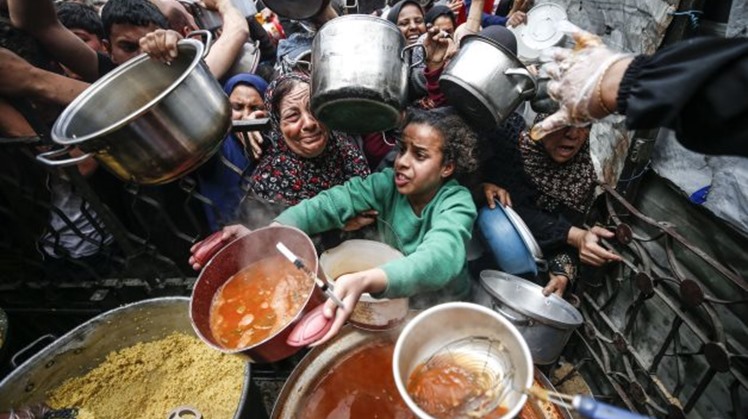CAIRO – 16 August 2025: Egypt called for increased international pressure on Israel to allow the full delivery of humanitarian aid to Gaza through all crossings, during talks with the European Union and France on Friday.
Foreign Minister Badr Abdelatty conveyed Egypt’s position in separate phone calls with EU foreign policy chief Kaja Kallas and French Foreign Minister Jean-Noël Barrot.
Abdelatty condemned Israel’s starvation policy against innocent civilians in Gaza, the Ministry of Foreign Affairs stated.
He stressed that, as the occupying power, Israel bears full responsibility for opening its five border crossings with Gaza to ensure the flow of humanitarian, medical, and relief assistance to the enclave.
He briefed Kallas on Egypt’s close coordination with Qatar and the United States to broker a comprehensive agreement that would secure a ceasefire, enable the entry of aid, and ensure the release of captives and a number of Palestinian detainees.
The minister also confirmed that Egypt is preparing to host an international conference on early recovery and reconstruction in Gaza, to be held immediately upon reaching a ceasefire agreement.
The conference will be organized in full coordination with regional and international partners, including the EU.
Abdelatty reaffirmed to both Kallas and Barrot Egypt’s firm support for the establishment of an independent Palestinian state, as part of the Palestinian people’s legitimate right to self-determination.
In his conversation with the French foreign minister, Abdelatty praised France’s recent announcement of its intention to recognize the Palestinian state, describing it as a bold step.
He stressed that establishing an independent Palestinian state based on the June 4, 1967, borders, with East Jerusalem as its capital, remains the only path to achieving lasting peace and stability in the region.
Furthermore, Abdelatty reaffirmed during the phone calls Egypt’s rejection of recent statements promoting the so-called concept of “Greater Israel,” warning that such rhetoric—alongside other Israeli practices—fuels hatred, extremism, and instability across the region.
Abdelatty also condemned Israel’s recent decisions to expand settlements in the occupied West Bank, describing them as a blatant violation of international law.
Earlier this week, Israeli Prime Minister Benjamin Netanyahu asserted that he is on “a historic and spiritual mission,” expressing strong attachment to the “Greater Israel” vision.
The term “Greater Israel” is widely used to describe a religiously driven ideology among Zionist extremists, envisioning an Israeli state that extends into parts of modern-day Egypt, Syria, Jordan, and Lebanon.
Netanyahu’s remarks sparked widespread Arab condemnation, including from Egypt, which called for clarification in light of their serious implications. Egypt’s Foreign Ministry emphasized that such statements reflect a rejection of the peace path and a deliberate move toward escalation.
 Sat, Aug. 16, 2025
Sat, Aug. 16, 2025